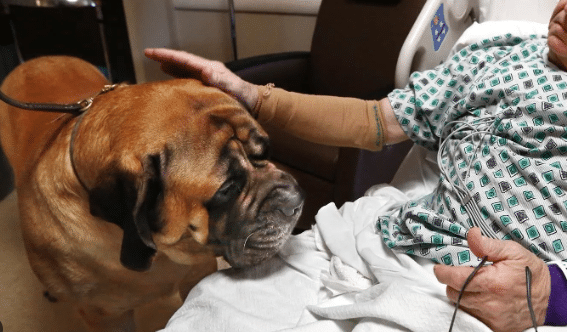Every year, thousands of individuals in Western Australian suffer injuries as a result of road accidents and many go on to make a motor vehicle accident claim. Motor vehicle accidents can cause a wide range of injuries, from minor whiplash to life threatening or permanent disabilities.
Being involved in a car accident can be an extremely distressing, overwhelming and frightening experience, particularly when the collision is not your fault. Dealing with the impact of ongoing injuries and disabilities can make the recovery process challenging and may have an impact on your employment opportunities and activities of daily living.
Actions to take in the event of a crash
Being at the scene of a motor vehicle accident can be a very distressing situation for everyone involved. However, it is important to be aware of the legal obligations that must be fulfilled.
You are required to provide your name and address, and if the vehicle is not yours, the name and address of the owner of the vehicle.
Additionally, we recommend obtaining several important pieces of information, including:
- the names, addresses and insurance details of any other drivers involved;
- the make, colour, model and registration number of any other car involved;
- the names, addresses and phone numbers of any witnesses to the accident;
- the time and date of the accident, road and weather conditions; and
- the names of road/s involved, nearby monuments or buildings.
If you have access to a camera, you may also choose to take photos of the property damage at the scene.
How to respond when encountering an uncooperative individual
-
- If you encounter an uncooperative individual involved in an accident who refuses to provide their details, it is essential to remember that exchanging information is a legal requirement for all parties involved. In such situations, it is advisable to contact the police.
- Unfortunately, hit and run incidents do sometimes occur. Regardless, it is still crucial to report the incident to the police as there may still be options available to you.
When to report the accident
The accident will need reporting to the police if:
-
- The incident has resulted in bodily harm; or
-
- The total value of property damage to all parties involved exceeds $3000; or
- If someone has been injured, you must also report the crash to the Insurance Commission of WA (ICWA).
Keep in mind only your or or the police have authority to give consent for your vehicle to be towed.
Contacting your insurer
-
- You should let your insurer know that you have been involved in an accident. Contact them online, by telephone or in store at one of their local branches.
-
- If you have suffered damage due to a car accident, you may still have a claim for compensation under compulsory third-party insurance.
-
- All road users in WA are required by law to have compulsory 3rd party insurance. By paying your vehicle registration, you are also paying for 3rd party insurance.
-
- This insurance is provided by ICWA.
- This insurance is provided by ICWA.
What can you claim when making a motor vehicle accident claim in WA?
If you are eligible to make a claim there are a variety of different outcomes that may apply to you. Our lawyers will assess what claims apply to your personal situation. Some claims are easily linked to the accident whereas others can be difficult to track and value. The potential claims you can make are listed below:
-
- Ambulance transport
- ICWA may pay for emergency transport from the accident site to the hospital regardless of who is at fault.
- Ambulance transport
-
- Hospital services
- Compensation for emergency treatment for when you attended the hospital.
- Hospital services
-
- Nursing and medical services
- This can be very broad as it can involve therapy/rehabilitation appointments, x-rays and scanning along with general services such as gardening or cleaning as you are recovering from your injuries.
- Nursing and medical services
-
- Medical aids
- You may be able to receive medication, equipment such as a prosthetic limb or glasses as a part of your claim.
- Medical aids
-
- Travel
- To and from appointments that were a result of the injuries you received in the crash.
- Travel
-
- House/living modifications
- Changes in your lifestyle that were made to make it easier for you such as handrails in the bathroom or around the home can also be claimed.
- House/living modifications
-
- Economic loss
- You may be able to receive payment for your loss of income.
- Economic loss
-
- Pain and suffering
- To receive compensation for pain and suffering (also described as general damages or non-pecuniary loss), it must exceed a minimum threshold. A Threshold Schedule will be used to assess the amount you are able to receive.
- To receive compensation for pain and suffering (also described as general damages or non-pecuniary loss), it must exceed a minimum threshold. A Threshold Schedule will be used to assess the amount you are able to receive.
- Pain and suffering
Who is entitled to claim? Is it just drivers? Or passengers too? Pedestrians?
Anyone who was injured or suffered damage in an accident can make a motor vehicle accident claim, even if the crash was partially your fault. If you were the driver, passenger, pedestrian or cyclist injured in the accident, you are entitled to claim compensation for those injuries.
You can make a claim if:
-
- you are not at fault or only partly at fault for the vehicle crash;
-
- you were injured in the crash (includes drivers, passengers, pedestrians and cyclists); or
-
- a close relative was fatally injured in the crash and you were financially dependent on them (dependency claim).
- a close relative was fatally injured in the crash and you were financially dependent on them (dependency claim).
Are there any restrictions when making a claim?
The amount you can claim may be reduced if you:
-
- were not wearing a seatbelt;
-
- were not wearing a helmet while riding a motorbike, scooter or bicycle;
-
- were riding unrestrained in an open-top vehicle;
-
- were partly responsible for the crash; or
-
- you were under the influence of alcohol or drugs.
- you were under the influence of alcohol or drugs.
Are there any statutory time limitations for when you can bring a claim?
The general rule is that you have to lodge Court proceedings within 3 years from when you suffered your injuries or the date of the crash. The only exception is if you are under the age of 18, in which the time period will change in relation to your age.
-
- Make sure you try and settle your claim within the first three years from the date that you suffered the injuries. If the settlement fails to happen within this time period then you should make sure court proceedings are started as soon as possible.
-
- Dependency claims and application forms must be submitted within three years from the injuries.
- Dependency claims and application forms must be submitted within three years from the injuries.
What can Brand Barristers and Solicitors offer me?
Our firm provides high quality legal advice and representation to our clients through a thorough knowledge of the law and desire to achieve the very best outcomes.
Our approach is practical, supportive and focused.
Our team is highly experienced in personal injury law and catastrophic injuries, specialising in motor vehicle accident claims.
Contact us today on +61 (08) 6260 0076 or email admin@brandsolicitors.com.au to organise an obligation-free meeting which can be done either over the phone or in person to suit your personal needs.



